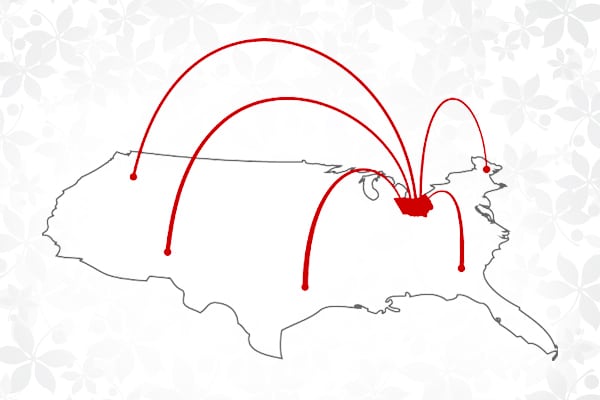State Authorization

State Authorization
Authorization requirements vary by state and program. At Ohio State, we have a team dedicated to researching regulations, seeking and maintaining compliance, and communicating changes in authorization status.

What Is State Authorization?
State authorization refers to federal, state and professional licensing board regulations that impact online and on-ground education offered across state lines. Compliance with these regulations ensures that an Ohio State degree will be recognized and that a student will be eligible to sit for licensure in states other than Ohio.
Authorization requirements vary by state and program, and may impact university operations. At Ohio State, we have a team dedicated to researching regulations, seeking and maintaining compliance, and communicating changes in authorization status.
The Out-of-State Educational Activities policy serves as the guiding policy for the state authorization team and its units that it supports.

The Ohio State University participates in the State Authorization Reciprocity Agreements (SARA).
SARA is a national initiative that increases student access to distance education courses and programs while maintaining compliance with state regulations. Institutions participating in SARA can offer educational opportunities in all 49 SARA member states, the District of Columbia, the U.S. Virgin Islands and Puerto Rico without seeking individual approval in each state.
California is not a SARA member state, however, OSU may offer online courses and programs to students located in California under the California Private Post-Secondary Act of 2009.
Student Complaint Process
Students enrolled in Ohio State courses who have a complaint about a course or experience should follow Ohio State’s complaint, grievance and appeal procedures. Students who are unable to resolve a complaint with the course instructor, department or college are encouraged to file a grievance with the Office of Undergraduate Education or the Graduate School.
If a student living in a State Authorization Reciprocity Agreement (SARA) state is not satisfied with the outcome of this process, a complaint involving allegations of fraudulent activity, including the provision of false or misleading information, may be appealed to the Ohio Department of Higher Education, which is the SARA portal entity for Ohio. The appeal must be brought within two years of the incident about which the complaint is made. Resolution of the complaint by the Ohio Department of Higher Education is final.
Examples of types of student complaints that may be brought to the SARA portal entity include, but are not limited to, complaints regarding accuracy of job placement data, tuition or fee information, accreditation, whether a program meets licensure requirements, or course transfer information. Grade appeals and student conduct appeals are not allowed under SARA.
Get Started
Connect with a knowledgeable Enrollment Advisor who can help answer your questions and explain different aspects of the more than 80 online degrees and certificates offered at Ohio State. They are here to help you on your education journey.

